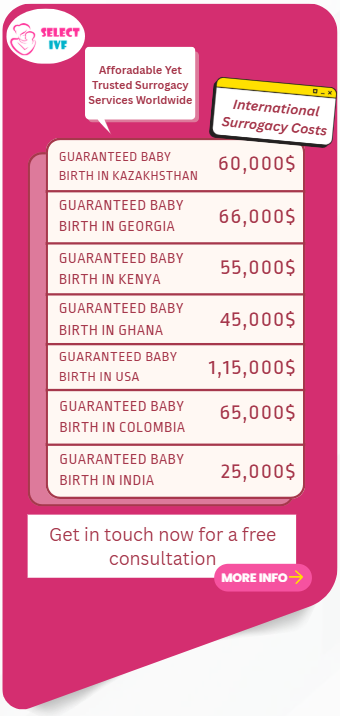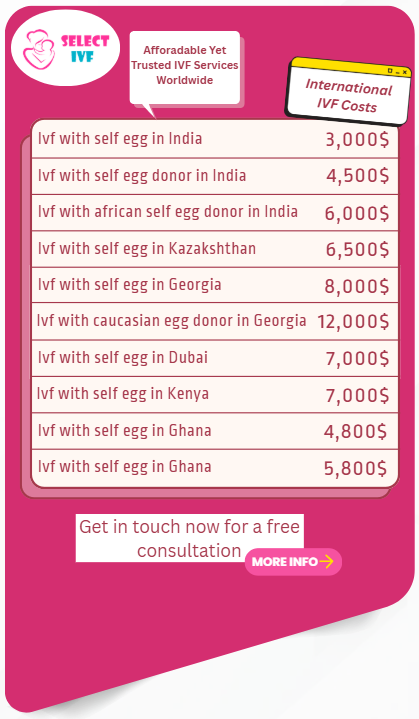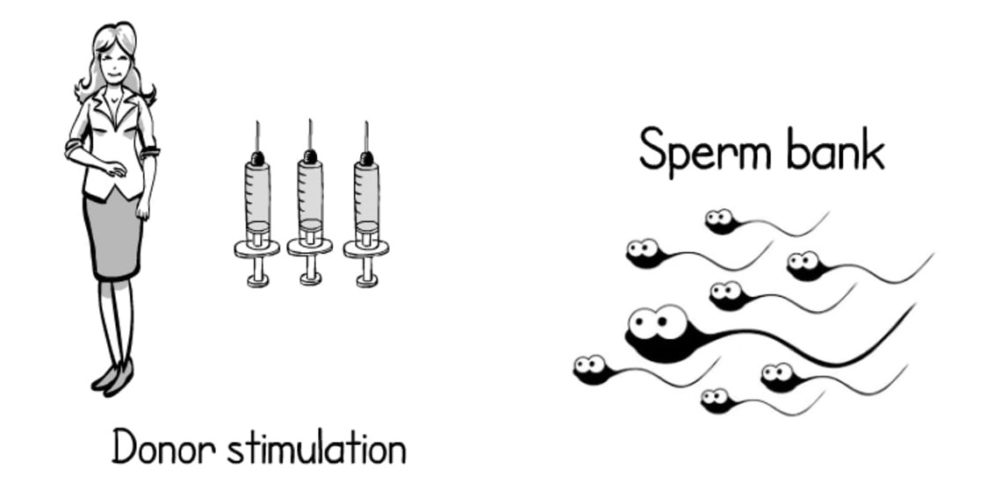A cancer diagnosis can bring a whirlwind of emotions, fear, confusion, urgency, and uncertainty. The top priority becomes clear: survival. Most people immediately focus on beginning treatment to fight the disease. However, what often gets overlooked in those early discussions is the long-term impact cancer treatment can have on fertility.
Chemotherapy, radiation, and certain surgeries can damage reproductive organs or disrupt the hormones necessary for reproduction. For individuals who dream of becoming parents someday, this can be a heartbreaking prospect. The ability to have biological children may be reduced, or even lost, if steps aren’t taken early enough.
That’s where fertility preservation comes in. It refers to medical strategies used to safeguard reproductive cells (like eggs or sperm) or tissues before Fertility Before Cancer Treatment begins. These methods can help protect your ability to have children in the future, even if your treatment affects your fertility.
Fertility preservation may not be the first thing that comes to mind when you hear the word “cancer,” but it matters, especially for young adults, teenagers, and children who haven’t started families yet. Fortunately, there are safe and effective techniques available for both men and women. These methods range from freezing eggs, sperm, or embryos to more advanced options like tissue preservation.
It’s important to understand that timing is critical. The best window to consider fertility preservation is before treatment begins. Once chemotherapy or radiation has started, the chances of preserving fertility may decrease significantly. That’s why it’s essential to discuss this with your oncologist and a fertility specialist as soon as possible.
This guide is designed to explain everything in simple, friendly language, how fertility preservation works, who should consider it, what the options are, and how to make the best decision for your future. Even amid a cancer journey, you deserve the hope and possibility of building a family someday.
Why should you trust SELECT IVF for Fertility Before Cancer Treatment?
- First-stage top counseling sessions
- Premium services and processes
- Highly competent specialists for Fertility Before Cancer Treatment
- Sky-high IVF success rates in Hyderabad
- Contact us Email ID: info@selectivf.com
- Call us: +91- 9899293903
What is Preserving Fertility Before Cancer Treatment?
Preserving fertility before cancer treatment means taking steps to protect your ability to have biological children in the future, before starting therapies like chemotherapy, radiation, or surgery that could damage your reproductive system.
Cancer treatments are powerful and necessary to save lives, but they often harm the ovaries, uterus, eggs, sperm, or hormones involved in reproduction. That’s why many people, especially young men, women, and even children, choose to freeze their eggs, sperm, embryos, or reproductive tissue before treatment begins.
It’s like pressing a pause button on your fertility. You may not be ready to think about having children now, but fertility preservation gives you the option to try in the future, after you’ve recovered.
There are different methods available, depending on your gender, age, and how soon your treatment needs to begin. The most common options include:
- For women: egg freezing, embryo freezing, ovarian tissue freezing, hormone injections, and shielding during radiation.
- For men: sperm freezing, testicular sperm extraction, and tissue freezing for boys.
Fertility preservation is a hopeful part of cancer care. It’s about giving you the chance to live a full, healthy life, with the future option of building a family when you’re ready.
This Is How It Works
Preserving fertility before cancer treatment may sound complex, but don’t worry — we’ll break it down step by step. The actual process depends on your gender, age, cancer type, and how quickly your treatment needs to begin. But overall, here’s how it works:
Step 1: Talk to Your Oncologist Early
As soon as you’re diagnosed with cancer, you should have a conversation with your oncologist (cancer doctor) about how your treatment might affect your fertility. Don’t be afraid to ask:
- Will this treatment affect my ability to have children?
- Can I preserve my fertility before starting?
- Can I speak to a fertility specialist?
Your oncologist may not be a fertility expert, but they can refer you to one immediately. Time is crucial here, so it’s best to raise the topic early.
Step 2: Meet a Fertility Specialist
A fertility specialist (also called a reproductive endocrinologist) will assess your individual situation. They’ll discuss:
- Your age and current fertility status (egg or sperm quality)
- The type of cancer and treatment plan
- The urgency of starting cancer therapy
- The best fertility preservation method for you
They may run blood tests, ultrasounds, or semen analysis to evaluate your current fertility.
Step 3: Choose the Right Fertility Preservation Option
Once your fertility expert has assessed your condition, they will suggest the most suitable option. Here’s a basic overview:
For Women:
- Egg Freezing (Oocyte Cryopreservation): Eggs are collected and frozen for future use.
- Embryo Freezing: Eggs are fertilized with sperm to create embryos, then frozen.
- Ovarian Tissue Freezing: A part of your ovary is surgically removed and frozen.
- Ovarian Suppression: Hormonal medications are used to temporarily “pause” the ovaries during treatment.
For Men:
- Sperm Freezing: Semen samples are collected and frozen.
- Testicular Sperm Extraction (TESE): Sperm is collected directly from the testicles (if ejaculation isn’t possible).
- Testicular Tissue Freezing: For prepubescent boys who don’t yet produce sperm.
Your choice depends on timing, medical condition, relationship status (for embryo freezing), and whether you’ve reached puberty.
Step 4: Begin the Fertility Preservation Process
Once a method is chosen, the process begins right away. Here’s a general timeline:
- For women: Hormone injections are given for 10–14 days to stimulate egg production. Then, the eggs are retrieved under light anesthesia and frozen.
- For men: One or more semen samples are collected over a few days and stored. This process is quick and doesn’t delay treatment.
- For surgical options: Like ovarian or testicular tissue removal, surgery is scheduled immediately to avoid delaying cancer treatment.
Step 5: Start Your Cancer Treatment
Once fertility preservation is complete, your cancer treatment begins as planned. Your frozen eggs, sperm, embryos, or tissue will remain safely stored until you’re ready to use them in the future.
Step 6: After Recovery, Exploring Parenthood
After you finish your cancer treatment and feel ready to plan a family, you can revisit your fertility clinic. They’ll help guide you on how to use your preserved material through methods like:
- IVF (In Vitro Fertilization)
ICSI (Intracytoplasmic Sperm Injection) - Embryo transfer
Or even transplanting preserved tissue back into your body
Your future journey to parenthood may look a little different, but it is still very much possible.

When to Talk About Fertility Preservation Before Cancer Treatment…
The best time to talk about fertility preservation is as early as possible, ideally before you begin any cancer treatment. This conversation should happen right after diagnosis and before your first dose of chemotherapy, your first radiation session, or any surgery. Why? Because many cancer treatments can affect your ability to have children in the future, sometimes permanently. But if you act early, you have more options to protect your fertility.
Why Timing Matters So Much?
Cancer treatments like chemotherapy and radiation are designed to destroy fast-growing cells, and unfortunately, your reproductive cells (like eggs and sperm) fall into that category. Once treatment begins, the damage to your fertility may already be done, and it might not be reversible.
Some fertility preservation methods, such as egg or sperm freezing, require a few days to a couple of weeks to complete. For example:
- Egg freezing usually takes 10–14 days of hormonal injections before eggs can be collected.
- Sperm banking might require multiple samples over a few days.
This small window of time before treatment is your opportunity to preserve your reproductive potential. If you wait too long or begin treatment without taking action, some fertility options may no longer be possible.
Who Should Initiate the Conversation?
Ideally, your oncologist (cancer doctor) should bring up fertility preservation when discussing your treatment plan. But in reality, that doesn’t always happen. Cancer is a big topic, and doctors often focus first on the immediate medical needs.
That’s why you have every right to bring it up yourself. If your doctor doesn’t mention fertility, ask:
- “Will this treatment affect my ability to have children in the future?”
- “Can I speak to a fertility specialist before treatment starts?”
It’s your body, your future, and your decision. Don’t feel shy or guilty for asking these questions.
What If My Treatment Needs to Start Immediately?
Some cancers are aggressive and need treatment to start right away. Even then, there may still be fertility options available, such as ovarian tissue freezing or quick sperm collection that don’t cause delays.
Your doctor and fertility expert can work together to create a safe, time-sensitive plan that balances both cancer treatment and fertility preservation.
Fertility Preservation Options for Women
When a woman is diagnosed with cancer, one of the biggest fears is whether she’ll be able to have children after treatment. Cancer therapies like chemotherapy, radiation, and surgery can damage the ovaries, reduce egg quantity and quality, or even cause early menopause. But the good news is, fertility can be protected if planned at the right time.
Let’s take a deep dive into the options available to preserve fertility in women before cancer treatment starts. These options give hope, confidence, and a sense of control during an emotionally difficult time.
1. Egg Freezing (Oocyte Cryopreservation)
Egg freezing is the most well-known and trusted method for women to protect their fertility. It involves collecting a woman’s mature eggs from the ovaries and freezing them for future use. Later, when she has recovered from cancer and wants to start a family, the frozen eggs can be thawed, fertilized with sperm, and implanted into the uterus using IVF.
The process usually takes about two weeks and includes hormone injections to stimulate the ovaries so they produce multiple eggs. Once the eggs are mature, they are retrieved in a short, safe outpatient procedure under light anesthesia. Then, they’re frozen and stored in a fertility lab for as long as needed.
This option is ideal for women who don’t yet have a partner or are not ready to create embryos. It offers independence and future flexibility.
2. Embryo Freezing
Embryo freezing is very similar to egg freezing, but with one major difference: the eggs are fertilized before freezing. In this method, after hormone stimulation and egg retrieval, the woman’s eggs are fertilized with sperm (either from a partner or a donor) in the lab. The resulting embryos are then frozen and stored.
This method has a slightly higher success rate than egg freezing because embryos are more stable and have a better chance of leading to pregnancy. However, it’s only suitable for women who already have a male partner or are open to using donor sperm.
Embryo freezing can give a woman a head start in family planning, but it also involves future legal or emotional questions, such as what happens to the embryos if circumstances change.
3. Ovarian Tissue Freezing
This is a newer and more advanced option, especially helpful for women who don’t have time to go through the egg-stimulation process, or for younger girls who haven’t reached puberty. In this method, a small portion of ovarian tissue is removed through a minor surgery (laparoscopy) and frozen. The tissue contains thousands of immature eggs.
Later, after cancer treatment, the tissue can be transplanted back into the woman’s body, and in many cases, natural menstrual cycles — and even natural pregnancy, can return. It can also restore hormone production, which is especially helpful for women who enter early menopause due to cancer treatment.
Ovarian tissue freezing is still considered experimental in some countries, but many successful pregnancies have been reported worldwide.
4. Ovarian Suppression with Hormonal Injections
This method doesn’t freeze or store eggs but aims to protect the ovaries during chemotherapy. In ovarian suppression, medications called GnRH agonists are given through monthly injections. These drugs temporarily “shut down” the ovaries, putting them in a resting state, like a temporary menopause.
The idea is that if the ovaries are inactive, they will be less affected by chemotherapy. This method is often used alongside other fertility preservation options for extra protection.
It’s important to know that ovarian suppression doesn’t guarantee fertility will be saved, but it is a helpful and simple method that doesn’t require surgery or delay cancer treatment. Plus, once treatment is over, periods and fertility may naturally return.
5. Radiation Shielding (Ovarian Transposition)
When radiation is required in the pelvic area, such as for cancers of the uterus, cervix, or colon, it can damage the ovaries and uterus. To reduce this risk, radiation shielding or ovarian transposition is used.
In radiation shielding, protective materials are placed around the ovaries to reduce their exposure to harmful rays. In ovarian transposition, the ovaries are surgically moved away from the radiation field (higher into the abdomen) to keep them safe during treatment.
While this method doesn’t involve freezing or storage, it’s a practical and effective way to preserve natural function. It’s often combined with other fertility preservation techniques to offer better protection.
Which Option Is Right for You?
Choosing the best fertility preservation method depends on many factors:
- Your age
- Type and stage of cancer
- Time available before treatment starts
- Whether you have a partner
- Your personal and emotional preferences
- Your medical history
A fertility specialist will help you decide which method is most suitable. The most important thing is to have the conversation early and explore your options before starting treatment.
Fertility Preservation Options for Men
Cancer treatment doesn’t just affect the body, it can also affect a man’s ability to have biological children in the future. Chemotherapy, radiation, and certain surgeries can damage the testicles, reduce sperm count, or interfere with ejaculation. But just like women, men also have safe and effective options to preserve their fertility before treatment begins.
Let’s explore the methods available to men to protect their fertility and keep the door open for future fatherhood.
1. Sperm Freezing (Sperm Cryopreservation)
This is the most common and straightforward method of fertility preservation for men. It’s simple, fast, and widely available.
What is it?
Sperm freezing involves collecting semen samples (through masturbation) and storing the sperm in a fertility lab at very low temperatures. The sperm can later be thawed and used to fertilize an egg using assisted reproductive methods like IVF or ICSI.
How it works:
- The man provides one or more semen samples, usually spaced a few days apart.
- These samples are tested for quality and frozen in liquid nitrogen.
- The sperm can be stored safely for many years without losing function.
Who can use this?
Any man or teenage boy who has reached puberty and is able to produce a semen sample before cancer treatment.
Why it’s great:
- Quick and easy process, usually done in 1–3 days.
- No surgery or anesthesia needed.
- High success rates when used with IVF techniques.
2. Testicular Sperm Extraction (TESE)
Sometimes, men are unable to ejaculate due to medical or emotional issues, or they may have very low sperm counts. In these cases, a small surgical procedure called Testicular Sperm Extraction (TESE) can be performed.
What is it?
TESE is a minor surgery in which sperm is collected directly from the testicles using a needle or small incision. The sperm is then frozen for future use.
Who needs this?
- Men who cannot produce semen naturally due to blockage, illness, or nerve damage.
- Men whose semen has no sperm but still produce some in their testicles.
Key benefits:
- Offers an option for men who otherwise couldn’t preserve their fertility.
- Performed under local or general anesthesia, and is usually safe.
Considerations:
- It’s a bit more invasive than sperm banking.
- It may take a day or two to recover from the procedure.
3. Testicular Tissue Freezing (For Prepubescent Boys)
Boys who haven’t reached puberty yet cannot produce sperm. But they still have reproductive stem cells in their testicles that can one day develop into sperm. That’s where testicular tissue freezing comes in.
What is it?
This method involves removing and freezing a small piece of testicular tissue that contains immature sperm-producing cells. In the future, once science advances further, this tissue may be used to restore fertility.
Who is it for?
- Boys under puberty who are facing cancer treatment that may damage their reproductive system.
Important to know:
- This method is still experimental and not yet guaranteed to result in pregnancy.
- However, it offers hope and is actively being studied worldwide.
4. Shielding During Radiation
If a man is going to receive radiation near the pelvic area, steps can be taken to protect the testicles from radiation exposure.
What is it?
Special protective shields or garments are used during radiation therapy to reduce damage to the sperm-producing tissues in the testicles.
Why it’s helpful:
- Simple and non-invasive.
- Often used alongside other fertility preservation methods for better protection.
How Cancer Treatment Affects Fertility
Cancer treatment saves lives, and that is the most important thing. But it can also bring long-term side effects, one of the most emotional being the loss of fertility. Many people don’t realize that treatments like chemotherapy, radiation, and surgery can harm the body’s reproductive system. That’s why understanding how these treatments affect fertility is so important, so you can take steps to protect it before treatment begins.
Let’s look at how different cancer treatments affect fertility in both women and men.
1. Chemotherapy and Fertility
Chemotherapy uses powerful drugs to kill fast-growing cancer cells. But unfortunately, these drugs can also damage healthy, fast-growing cells, and that includes reproductive cells like eggs and sperm.
In Women:
- Chemotherapy can damage the ovaries and reduce the number and quality of eggs.
- Some women may go into early menopause, either temporarily or permanently.
- The risk of infertility depends on the type of chemo drugs, your age, and the dosage.
- Older women are more likely to lose fertility because their egg reserve is already low.
In Men:
- Chemotherapy can reduce sperm count, damage sperm DNA, or stop sperm production altogether.
- Some men experience temporary infertility, while others may face permanent infertility depending on the treatment strength.
Chemotherapy’s effects are unpredictable; some people regain fertility after treatment, others don’t. That’s why freezing eggs or sperm before chemotherapy is often recommended.
2. Radiation Therapy and Fertility
Radiation therapy uses high-energy rays to kill cancer cells. While it’s targeted, it can still damage nearby organs, including reproductive ones.
In Women:
- Radiation to the pelvic area can damage the ovaries, leading to egg loss or early menopause.
- It can also harm the uterus, making it harder to carry a pregnancy later.
- Even low doses can impact hormone production and egg quality.
In Men:
- Radiation aimed at or near the testicles can reduce sperm production.
- Even when the testicles are not directly targeted, scattered radiation can still have an effect.
- Radiation to the brain (pituitary gland area) can disrupt hormone signals needed for sperm production.
In both sexes, radiation damage can be permanent, so protecting the reproductive organs (with shielding or transposition) or preserving sperm/eggs ahead of time is important.
3. Surgery and Fertility
Cancer surgery may involve removing parts of the reproductive system, depending on the location and type of cancer.
In Women:
- Surgery may remove the ovaries, fallopian tubes, or uterus, especially in ovarian, cervical, or uterine cancers.
- If the uterus is removed (hysterectomy), a woman won’t be able to carry a pregnancy, even if her eggs are still healthy.
- Some surgeries damage nerves or the blood supply, which can affect natural fertility.
In Men:
- Surgery for testicular cancer may involve removing one or both testicles, which are responsible for sperm production.
- Prostate or bladder surgeries can damage nerves involved in ejaculation, leading to “dry orgasms” (no sperm release).
- Removal of the prostate or seminal vesicles means semen can no longer be produced or ejaculated naturally.
Surgical side effects are often permanent, so if fertility is important to you, always talk to your doctor before surgery.
4. Hormonal Therapy and Fertility
Certain cancers, like breast or prostate cancer, are treated with hormone therapy, which changes or blocks hormone levels in the body.
In Women:
- Hormonal therapy for breast cancer often involves medications that stop ovulation or lower estrogen levels.
- These medicines may affect menstrual cycles and reduce fertility over time.
In Men:
- Hormonal therapy for prostate cancer can stop testosterone production, which is needed for sperm production.
- Long-term use may result in infertility.
While hormone therapy doesn’t always cause permanent infertility, it can delay natural fertility for several years, making preservation important if you plan to have kids in the near future.
5. Bone Marrow or Stem Cell Transplant and Fertility
These treatments involve very high doses of chemotherapy and sometimes radiation, which can completely damage the ovaries or testicles.
- In women, it often leads to early menopause and permanent infertility.
- In men, it can stop sperm production permanently.
These patients are usually at high risk for infertility, so fertility preservation is strongly recommended beforehand.
What should you consider when selecting the top IVF Fertility treatment clinic in India?
We understand how difficult it is to select the best option for your infertility treatment, but do not get tense, as one of the best options is going to be suggested to you, where the patient collaborates with highly experienced and qualified doctors. The patient will find it comfortable as the staff will always stand by them, away from all the worries that come to their mind. We offer all types of infertility treatment, so contact us today! To start, consider the following factors while selecting a location:
i. The patient-focused assistance of the centre
ii. Professionals with extensive education and experience
iii. Infrastructure that is well-built for maximum comfort and happiness
iv. The entire medical staff treats you with respect
v. Assists you throughout the entire process from the beginning
vi. Offers transparent fees and processes
You have the option of choosing IVF for all of these! So, reach out to us at +91- 9899293903 | Email ID: info@www.selectivf.com
Why pick Select IVF for fertility solutions in India?
Several numbers of infertile couples trusted the select IVF for their bright future. We care for every patient who has issues of infertility. We understand the phase of infertility, and that’s why we want to assist you in your dream of achieving parenthood. The prices of IVF treatment are reasonable at our centre, We ensure the highest success rates, we keep transparency and ensure personalised care and support to our patients. Get the treatment from our clinic and make your life stress-free by hearing the giggling of your newborn.
Here’s why Select IVF is best for fertility treatment in India :
- The high success rate of IVF and other infertility treatments
- Several infertility treatments for different infertility issues
- Use of cutting-edge technologies
- Equipped with highly skilled and educated doctors
- Affordable prices for IVF and other infertility treatments
- Ensures utmost comfort and support during the procedure
Conclusion
A cancer diagnosis is a life-changing moment. In the rush to begin treatment, fertility is often the last thing on anyone’s mind, but it deserves a place at the table. You’re not just fighting for your life; you’re fighting for your future. And that future may include the hope of becoming a parent.
The good news is: medical science now offers many ways to preserve your fertility before cancer treatment begins. Whether you’re a man or a woman, single or in a relationship, young adult or still a child, there are options available. But these options depend on one crucial thing: timing.
The earlier you talk to your oncologist and meet a fertility specialist, the more choices you’ll have. With proper planning, you can protect your reproductive health and give yourself the chance to build a family when you’re ready and on your own terms.
Fertility Before Cancer Treatment isn’t just a medical step. It’s an emotional one. It offers hope, control, and a reminder that even in the face of cancer, you still have a future worth dreaming about.
Frequently Asked Questions (FAQs)
1. Why should I consider fertility preservation before cancer treatment?
Because treatments like chemotherapy, radiation, and surgery can harm your reproductive system. Preserving your eggs, sperm, or reproductive tissue beforehand keeps the option of parenthood open for your future.
2. Is fertility preservation safe?
Yes, fertility preservation methods like egg or sperm freezing are safe, widely used, and medically approved. The procedures are performed by fertility experts in advanced clinics and do not interfere with cancer treatment.
3. How long does fertility preservation take?
For women, egg or embryo freezing typically takes around 2 weeks. For men, sperm freezing can be completed in a few days. Emergency options like ovarian tissue freezing or TESE can be arranged quickly if needed.
4. Does fertility preservation delay cancer treatment?
In most cases, no. Doctors work closely to ensure fertility preservation is done swiftly and safely before treatment begins. For urgent cases, faster options are available that won’t cause delays.
5. Can children and teenagers also preserve fertility?
Yes. Even children who haven’t reached puberty can preserve fertility through tissue freezing techniques. Pediatric fertility preservation is growing and offers new hope for young patients.
6. How long can eggs, sperm, or embryos be stored?
They can be safely frozen and stored for many years, even decades, without losing their ability to result in a healthy pregnancy later in life.
Read Also:










